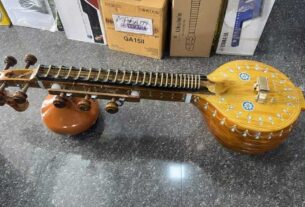Kamrul Hoque, an Assamese student launched a complaint to the Police Comissioner of Bengaluru after being allegedly assaulted by ticket collectors in a BMTC bus.
The Bengaluru Metropolitan Transport Corporation (BMTC) is actively investigating the alleged attack on an Assamese student studying in Azim Premji University, BMTC Public Relations Officer said. The Assam Tribune covered the incident and said that the attack took place on March 25.
The BMTC’s Public Relations Department said that they had not been approached by anybody regarding this incident before the police complaint was filed.
“Nothing that was published on the matter so far was verified by us. We are currently taking all the necessary steps to establish the series of events and take disciplinary action against the guilty party,” J Sunitha, the Public Relations Officer for the BMTC said on April 2.
She stated that they have requested the student to come forward and are currently checking the surveillance footage and interrogating the conductors and driver on board during the incident.
“We will provide updates after we conclude our inquiry,” she said.
Kamrul Hoque, the student who was allegedly assaulted, posted on X (formerly known as Twitter) that he was going from Bellandur gate to Sarjapura Circle via a BMTC bus, when he was accused of not paying his fare by bus conductors and was attacked and robbed of Rs. 450.
He said that they accused him of not paying the fare despite his attempts to explain that he had just boarded the bus and was about to pay the fare. He further explained that he was threatened with fines and police involvement before the threats escalated to physical aggression.
“They grabbed me by the collar, intent on dragging me off the bus to continue the assault away from prying eyes,” Hoque wrote on his post.
He also alleged that they accosted him because of his Assamese background.
“As they learned I was from Assam and didn’t speak Kannada, the ticket checkers seemed to view me as an easy target, further emboldening their mistreatment and assault,” he stated.
He launched a complained with the Police Commissioner of Bangalore on March 26. The Deputy Commissioner of Police said that further investigation will be conducted by the local police station, where the incident took place.
The Sarjapura police said that the investigation is going on and they can’t give any information regarding it.
Dhiraj Talukdar, an advisor at the Assamese Association Bangalore said that such assaults were rare in the past but he has observed that animosity towards non Kannada locals has been increasing in recent times.
“I do understand that the population has increased a lot and water problems have increased. Perhaps the local people feel insecure about their jobs being taken by outsiders. But without outsiders, the local economy cannot function, it will lose money,” he added.
He said that the association works towards deepening ties between Kannada and Asssamese culture through language learning campaigns and cultural exchange programs such as holding joint dance performances for Assamese and Yakshagana performers.
“I have been a resident of Bangalore for the past 17 years, and I always encourage my North-Eastern friends to learn Kannada as language conveys emotions and ideas.” He further stated.
M.N Sreehari, traffic expert and advisor to the Karnataka government said that the attack might have escalated from a smaller issue but what happened was regrettable and unfortunate.
“I condemn the incident completely, Bangaloreans generally treat people who come from outside with hospitality. People from the lower classes who work daily wage jobs, tend to not know any other language other than Kannada,” he said.
Hoque wrote that he had requested the conductors to check the CCTV footage to prove his innocence but was ignored by the conductors.
“The CCTV footage can show us the events that unfolded but it cannot track what was said in order to establish a fair point of view, a neutral witness must be included,” Sreehari said.
He explained that the staff who work on the buses are not properly trained to handle such situations.
Contributed by- Vishisht Dwivedi and Prajwal Jayaraj




